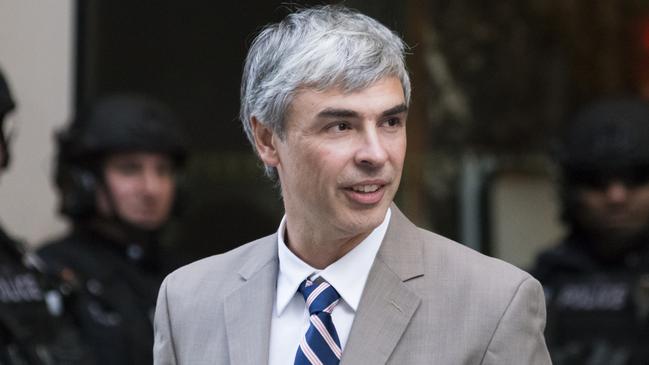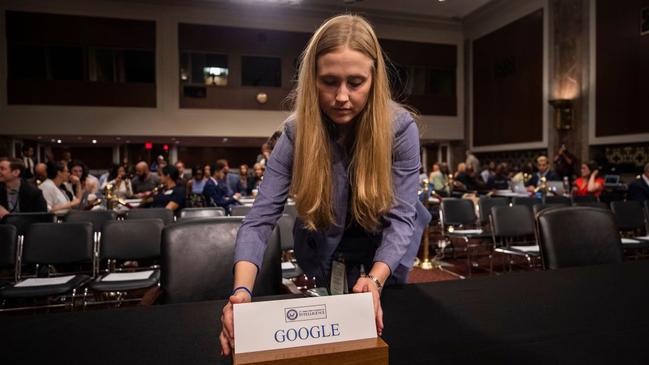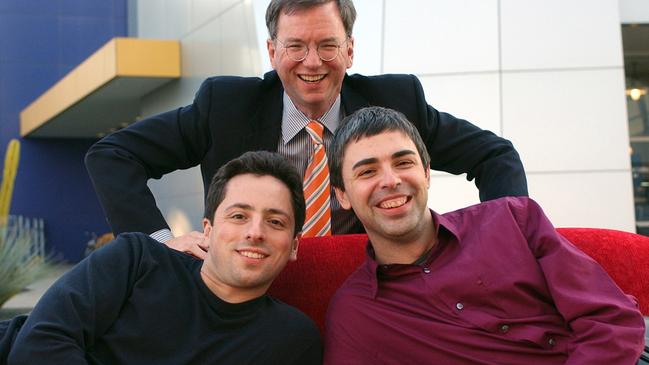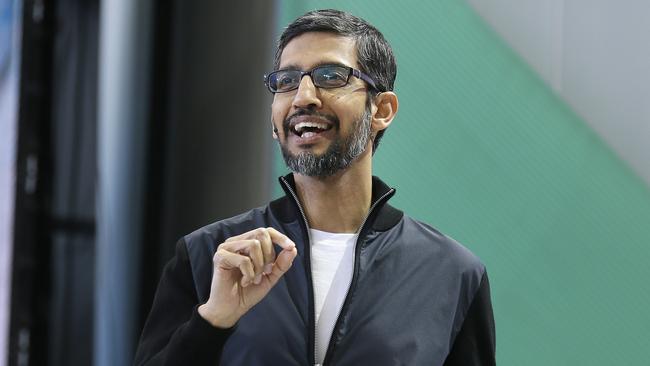The arrogance at the head of Google parent Alphabet
The aloof chief of Google’s parent, Larry Page, snubbed senators on Capitol Hill. Next time, he’d be wise to attend

Last month, a group of American politicians left a chair empty in their committee room. Larry Page was among a trio of Silicon Valley potentates summoned to testify at a Senate hearing into one of the gravest threats to liberal democracy of our age: the foreign tampering in elections on social media.
Facebook’s Sheryl Sandberg and Jack Dorsey, of Twitter, answered the senators’ call, but Mr Page, co-founder of Google and chief executive its parent company Alphabet, just couldn’t find time in diary to make the trip from California to Capitol Hill.
The snub was hugely symbolic, betraying the arrogance that has to come to characterise Alphabet’s dealings with governments.

It also underlines the increasingly aloof figure that Mr Page cuts at the world’s third largest technology company. He hasn’t presented at a product launch or an earnings call since 2013 and hasn’t done a press interview since appointing Sundar Pichai to run the Google business in 2015. These days, he is said to spend more time than ever on his private Caribbean island. The Alphabet boss seems increasingly distracted by his personal obsessions, too. In recent years he has dipped into his $US50 billion fortune to invest in airborne taxis, space elevators and other fantastical ventures.
These diversions could not come at a worse time for the company that he and Sergey Brin founded two decades ago.

Like its fortysomething creators, Google has reached middle age. The vigour of youth is waning and its reputation as a crucible for innovation is starting to fade.
Apart from its cloud computing division, the company has failed to create a business of scale outside its dominant digital advertising operation, despite ploughing many billions of dollars into driverless cars, robotics, artificial intelligence and other new technologies.
Mr Page and Mr Brin are right to be investing so heavily in these “moonshot” projects.
Last week, Alphabet’s shares were hit by a slowdown in growth at its ad business, which still accounts for nearly 86 per cent of revenues.
This is not overly surprising. Global marketing spending is large, but finite, and there is natural ceiling as to how much of the advertising pot will end up in Google’s hands.
Unless the company strives constantly towards the Next Big Thing, it risks becoming irrelevant.
Alphabet calls its next-generation businesses “other bets” and has disclosed them separately in its accounts for the past three years.
The category includes Waymo, its autonomous vehicle division, its healthcare and life extension businesses, respectively called Verily and Calico, and its X research unit that develops experimental projects.
These activities have devoured colossal amounts of capital, as well as significant amounts of its founders’ time, yet Alphabet has very little to show for all the attention lavished on them. In the first nine months of the year, the “other bets” divisions made only $US441 million in revenues.
The car industry is several times larger than the global advertising business and has long been a target for technology disrupters such as Alphabet. Having clocked up more kilometres on the road than its rivals, Mr Page’s autonomous vehicles have gained an early lead, but it is debatable whether being the first mover will confer much of an advantage.
By the time that regulators are comfortable allowing driverless cars on the roads, competitors may have caught up.

Google emerged from the dotcom bust with the most credible business in the nascent internet search arena and today its algorithms monitor our every movement and mouse-click and sell our eyeballs off to the highest bidder.
Politicians of every stripe are looking to impose stiffer regulation on Alphabet and to curb its growing power over the internet economy.
When Capitol Hill next comes knocking, Mr Page would be wise to pull up a chair.
The Times


